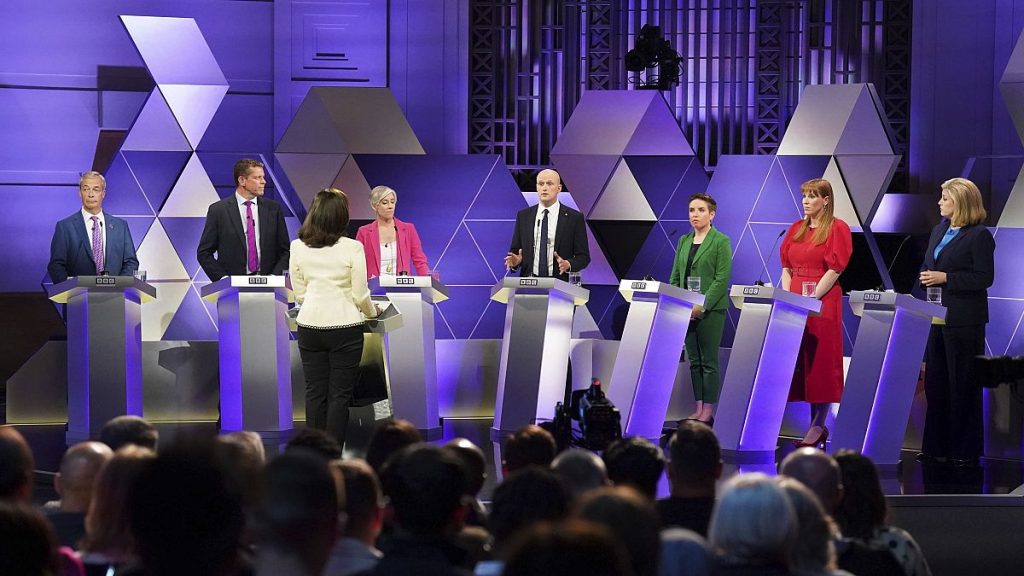During a televised debate ahead of the UK general election, representatives from seven major political parties clashed over various issues including the economy, the NHS, Brexit, and climate policy, with the most heated debate revolving around immigration. Prime Minister Rishi Sunak faced condemnation from his fellow party figures for leaving D-Day commemoration events in Normandy early to return to the campaign trail. Penny Mordaunt from the Conservative Party defended Sunak, stating that he had apologized for his early departure. However, other party leaders, including Nigel Farage and Daisy Cooper, criticized Sunak’s decision, calling it politically shameful and unpatriotic.
The Scottish National Party’s Stephen Flynn received applause from the audience for labeling Brexit as “an unmitigated disaster for the economy” and criticizing Farage for his role in delivering Brexit. Flynn highlighted the impact of Brexit on the economy and food prices, pointing out the negative consequences of the decision. However, it was the issue of immigration that sparked the most heated debate during the televised event. Farage claimed that immigration was causing a “population crisis” and diminishing the quality of life for UK residents, while Plaid Cymru’s leader Rhun ap Iowerth argued that immigration was necessary for public services and the economy.
Flynn from the SNP also emphasized the importance of immigration for public services and the economy, calling for an end to the demonization of migrants. Mordaunt from the Conservatives expressed the view that immigration levels were too high and announced the party’s plan to introduce an annual cap on the number of people allowed into the country. However, Labour’s Angela Rayner countered Mordaunt’s arguments by stating that issues with housing and healthcare were not the fault of migrants but a result of the Conservatives’ decimation of public services. The debate on immigration highlighted the varying perspectives and proposed solutions from different political parties.
The debate surrounding immigration and other critical issues is set to continue in the upcoming national television debates, which will feature Prime Minister Sunak and Labour leader Keir Starmer. In addition, there will be regional debates for Scotland, Wales, and Northern Ireland as the general election approaches on July 4. The clash of ideas and proposed policies from the major political parties underscores the importance of these debates in shaping public opinion and influencing voters’ decisions. The televised events provide a platform for party leaders to present their visions for the future of the country and address pressing issues facing the UK, including the economy, healthcare, Brexit, and climate policy.
The condemnation of Prime Minister Sunak for leaving the D-Day commemoration events early has united the party figures in their criticism, showcasing a rare instance of agreement among the seven major political parties. The debate highlights the challenges and controversies facing the UK as it approaches the upcoming general election. The differing viewpoints on issues such as immigration, Brexit, and public services reflect the diverse range of opinions within the political landscape. As the election date approaches, voters will have the opportunity to evaluate the competing visions and policy proposals presented by the various parties, ultimately shaping the future direction of the country.












